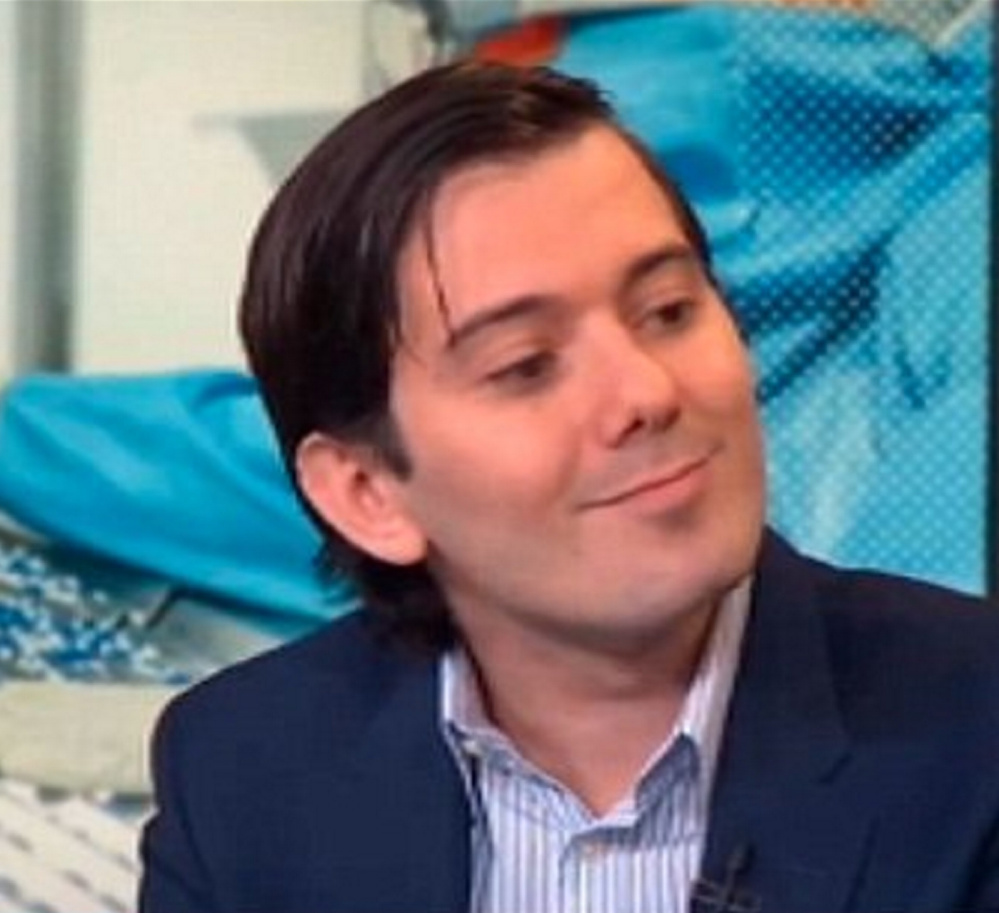A drug company executive who boosted the cost of a drug 50-fold to $750 a pill after purchasing the rights and touched off a firestorm of criticism appeared to back down Tuesday.
“We have agreed to lower the price … to a point that is more affordable,” Turing chief executive Martin Shkreli said Tuesday in an interview with ABC News. He didn’t say what the new price would be.
Turing acquired the older antibiotic drug Daraprim in August and soon after that raised the price to $750 a pill from $13.50.
That sparked widespread condemnation from both inside and outside the industry.
Hillary Rodham Clinton, calling the price hike “outrageous,” responded Tuesday with a proposal to cap consumer spending on drugs, while the top U.S. pharmaceutical lobby, Pharmaceutical Research and Manufacturers of America, said that New York-based Turing isn’t part of the group and doesn’t represent the values of its member companies.
The medicine has been on the market for 62 years and is the standard of care for a food-borne illness called toxoplasmosis caused by a parasite that can severely affect those with compromised immune systems, such as AIDS.
Alarmed consumers quickly took to the Internet to call for a boycott of the company’s products (with some pointing out that it’s hard to boycott a drug if you’ll die without it) and calling for new laws to prevent this kind of thing from happening in the future.
Judith Aberg, a spokesperson for the HIV Medicine Association, has calculated that even patients with insurance could wind up paying $150 per pill out of pocket. “This is a tremendous increase,” she told USA Today.
At one time Daraprim cost only $1 to manufacture, according to the New York Times.
Some hospitals won’t stock it because it is too expensive, possibly resulting in treatment delays, Arberg told the New York Times.
“This seems to be all profit-driven for somebody,” Aberg said, “and I just think it’s a very dangerous process.”
More than 70 percent of Americans think drug costs are unreasonable and favor limiting what drug companies can charge for medicines that treat serious illnesses, according to a recent poll from the nonpartisan Kaiser Family Foundation.
But even with broad public support, industry experts say price restrictions are unlikely to make their way through Congress, which is expected to remain in Republican hands.
“You have to look at this as a rhetorical statement,” said Dan Mendelson, president of Avalere health consultants.
Copy the Story LinkSend questions/comments to the editors.



Success. Please wait for the page to reload. If the page does not reload within 5 seconds, please refresh the page.
Enter your email and password to access comments.
Hi, to comment on stories you must . This profile is in addition to your subscription and website login.
Already have a commenting profile? .
Invalid username/password.
Please check your email to confirm and complete your registration.
Only subscribers are eligible to post comments. Please subscribe or login first for digital access. Here’s why.
Use the form below to reset your password. When you've submitted your account email, we will send an email with a reset code.